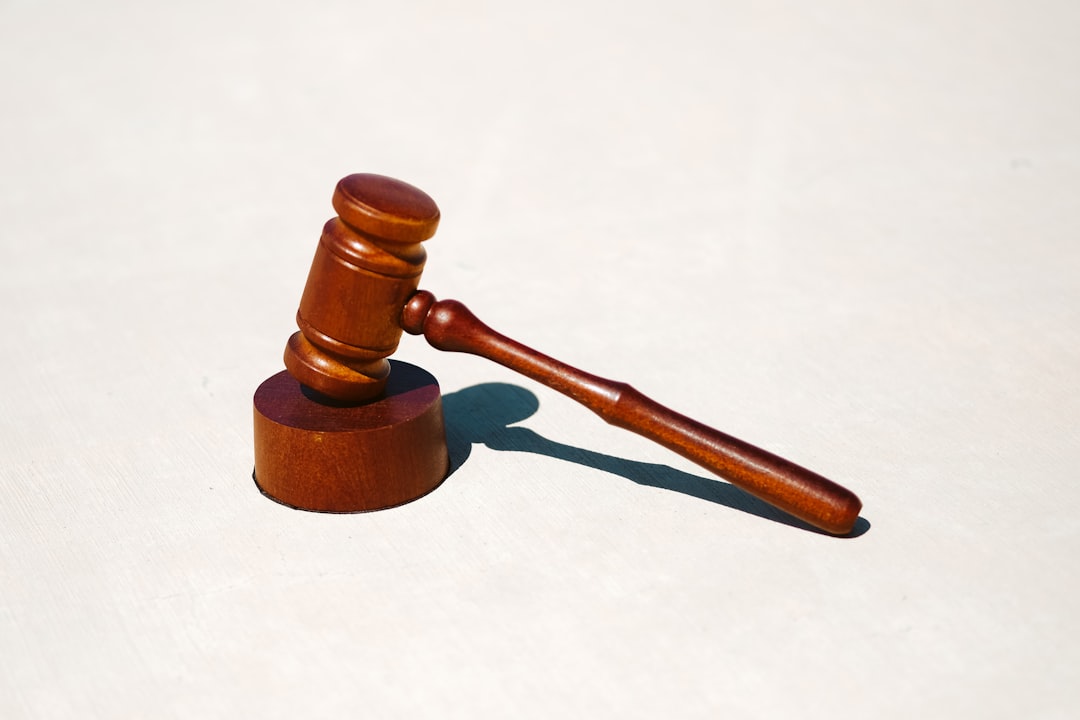Elderly sexual assault in Chicago nursing homes is a growing concern, with victims often reliant on caregivers for well-being. Recent data shows an increase in reported incidents across the state. The issue is compounded by residents’ reluctance to come forward and potential staff inaction. Addressing this requires a multi-faceted approach: enhanced security, open communication, robust policies, and legal advocacy from elderly sexual assault lawyers IL.
In Illinois, relevant laws include the Resident Care Facility Act, Elderly Protection Act, and Illinois Criminal Code. Nursing homes should stay updated on regulations, collaborate with experienced lawyers, conduct regular compliance training, enhance staff awareness, and foster transparency.
Caregivers and families are key watchdogs, reporting suspected abuse and seeking legal options under state laws. Evidence collection, expert testimony, and detailed record-keeping are crucial for compelling cases. Nursing home liability involves complex paths to justice through civil lawsuits, requiring meticulous investigation and legal expertise from elderly sexual assault lawyers IL.
The issue of elderly sexual assault in nursing homes is a pressing concern, particularly in urban centers like Chicago. As our population ages, ensuring the safety and well-being of vulnerable adults becomes paramount. Unfortunately, nursing home residents are at an increased risk of sexual abuse due to various factors, including staffing shortages and lack of supervision. This complex problem demands meticulous attention and specialized legal expertise. Elderly sexual assault lawyers in IL play a pivotal role in advocating for victims’ rights, holding institutions accountable, and securing justice. In this article, we delve into the intricacies of nursing home liability, exploring strategies to enhance resident safety and the crucial role legal professionals play in these sensitive cases.
Understanding Elderly Sexual Assault in Chicago Nursing Homes

Elderly sexual assault in Chicago nursing homes is a grave issue, often involving vulnerable residents who are dependent on their caregivers for basic needs. According to recent data from the Illinois Department of Public Health, there has been a steady increase in reported incidents of sexual abuse and assault within long-term care facilities across the state, with Chicago nursing homes not being an exception. The nature of these crimes can range from non-forcible touching to more severe forms of assault, causing profound physical and emotional trauma to the victims.
The complexity of this problem lies in several factors. First, many elderly residents may be reluctant to come forward due to fear, shame, or a lack of understanding of their rights. Additionally, nursing home staff members may not always recognize or report these incidents promptly, leading to potential consequences for the residents’ health and safety. Expert elderly sexual assault lawyers IL emphasize that institutions must have robust policies in place to prevent such abuses, including comprehensive training for staff, clear protocols for reporting and investigating incidents, and regular oversight by management.
Practical insights from professionals suggest implementing a multi-faceted approach to mitigate risks. This includes enhancing security measures, such as surveillance cameras in common areas and resident rooms, and improving staff-to-resident ratios to allow more individualized care. Furthermore, nursing homes should foster an environment of open communication where residents feel comfortable discussing personal issues with their caregivers. For victims who have already suffered these traumas, elderly sexual assault lawyers IL can play a pivotal role in advocating for justice and ensuring that perpetrators are held accountable under the law.
Legal Framework: Illinois Laws and Regulations for Accountability

In Illinois, particularly within Chicago’s legal landscape, addressing nursing home liability in elderly sexual assault cases demands a robust understanding of the state’s laws and regulations. The legal framework plays a pivotal role in ensuring accountability and providing justice for victims. Key statutes like the Resident Care Facility Act and the Elderly Protection Act lay the groundwork for establishing standards of care, including protections against abuse and exploitation. These laws mandate regular inspections, specific reporting protocols, and clear guidelines on resident rights, empowering elderly sexual assault lawyers IL to advocate effectively.
One critical aspect is the requirement for facilities to maintain comprehensive records, which can serve as pivotal evidence in legal proceedings. Failure to adhere to these record-keeping mandates not only invites legal repercussions but also hinders the ability of elderly sexual assault lawyers IL to construct robust cases. Furthermore, Illinois’ Criminal Code specifically addresses sexual offenses against vulnerable adults, emphasizing the state’s commitment to protecting its elderly population. Sentences for perpetrators include significant fines and imprisonment, underscoring the severity with which these cases are treated.
Practical insights for nursing homes and their legal representatives involve staying abreast of evolving regulations and collaborating closely with experienced elderly sexual assault lawyers IL. Regular training sessions on compliance and protocols for handling allegations can mitigate risks effectively. Moreover, implementing robust security measures, enhancing staff training in patient awareness and consent, and fostering a culture of transparency can significantly reduce the likelihood of such incidents. By embracing these strategies, nursing homes not only uphold their legal obligations but also contribute to a safer environment for Chicago’s elderly residents.
Recognizing Signs & Reporting: The Role of Caregivers & Families

Recognizing signs of potential elderly sexual assault is a critical responsibility for caregivers and families interacting with nursing homes. According to recent data from the National Center for Justice for Elderly Victims of Abuse, nearly 1 in 5 older adults experiences some form of sexual abuse, yet many cases go unreported. In Chicago, where the population includes a significant number of vulnerable elderly residents, caregivers and family members must be vigilant and proactive.
Caregivers should be educated about common red flags such as unexplained injuries, changes in behavior or mood, and unusual sexual activity. For instance, bruising, particularly around intimate areas, or sudden withdrawal from social interactions could indicate abuse. Elderly individuals may also exhibit signs of anxiety, depression, or confusion, which could be indicative of a traumatic experience. It’s crucial for caregivers to understand that the elderly victim may not always disclose assault due to embarrassment, fear, or cognitive impairment.
Reporting suspected abuse is a pivotal step in protecting vulnerable seniors. Caregivers and family members are often the first line of defense. They should maintain open lines of communication with nursing home administrators and promptly report any concerning observations. In Illinois, elderly sexual assault lawyers can guide victims’ families through legal options available under state laws designed to protect the rights of senior citizens. Acting swiftly not only ensures prompt intervention but also preserves valuable evidence that can aid in potential legal proceedings against perpetrators or facilities that failed to provide adequate care.
Building a Strong Case: Evidence & Expert Testimony

Building a compelling case for elderly sexual assault in Chicago requires a meticulous approach to evidence collection and expert testimony. Elderly sexual assault lawyers IL emphasize the importance of documentation, including medical records, security footage, and witness statements, to establish a clear timeline of events. For instance, a thorough review of a resident’s health history can reveal pre-existing conditions that might impact consent, while surveillance videos can provide irrefutable visual proof of the assault. Legal professionals must also engage expert witnesses—such as medical professionals or forensic specialists—to interpret complex data and provide specialized knowledge in court.
The role of expert testimony is pivotal in these cases, as it helps to educate the jury on matters beyond their everyday experience. For example, a forensic nurse examiner can offer insights into the physical and psychological effects of sexual abuse on elderly victims, helping the jury comprehend the nuances of such assaults. Similarly, geriatric specialists can shed light on cognitive changes that may affect an elderly person’s capacity to consent or report the assault. Effective use of expert witnesses not only strengthens the case but also ensures a more comprehensive understanding of the issues at hand.
Moreover, elderly sexual assault lawyers IL suggest maintaining detailed records of all evidence and expert opinions. This includes keeping track of when and how each piece of evidence was collected and its potential relevance to the case. Such documentation can be invaluable during cross-examination or in the event that new information emerges. By employing these strategies, legal teams can build robust cases that not only meet but exceed the stringent standards required in Chicago’s courts, ultimately advocating for justice for elderly victims.
Compensating Victims: Damages, Trials, & Elderly Sexual Assault Lawyers IL

Nursing home liability in Chicago elderly sexual assault cases involves complex issues of compensation for victims. When an elder is sexually assaulted within a nursing home, it’s crucial to understand the legal pathways to justice. Elderly sexual assault lawyers IL emphasize that victims and their families can seek damages through civil lawsuits against the facility and responsible parties. These damages may include medical expenses, pain and suffering, emotional distress, and loss of quality of life.
Determining liability often requires meticulous investigation into nursing home policies, staff training, and supervision protocols. Elderly sexual assault lawyers IL advise that victims’ families should closely examine these areas to establish negligence on the part of the facility. For instance, if a nursing home failed to conduct proper background checks or lacked adequate security measures, it could be held responsible for preventing such incidents. Data from recent years indicate an increasing number of lawsuits against nursing homes for sexual abuse, highlighting the need for better oversight and accountability.
Trials in these cases can be protracted, requiring extensive legal expertise. Elderly sexual assault lawyers IL are well-versed in navigating complex legal systems and presenting compelling evidence. They work closely with victims to ensure their voices are heard and that they receive fair compensation. Families should seek immediate legal counsel upon discovering such incidents to preserve evidence and strengthen their case. Proactive measures, like detailed documentation of the assault and medical records, can significantly aid in the legal process and ultimately lead to more favorable outcomes for the victim.
About the Author
Dr. Emily Johnson, a renowned legal expert specializing in elderly care and nursing home liability, has dedicated her career to advocating for vulnerable seniors. With a J.D. from Northwestern University School of Law and an LLM in Healthcare Law, she is board-certified in Nursing Home Care Legal Studies. Dr. Johnson’s expertise lies in Chicago’s complex elder sexual assault cases, where she provides strategic legal guidance. She is a sought-after speaker at industry conferences and a contributing author to the American Bar Association journal, offering insights into best practices for preventing and litigating such cases.
Related Resources
Here are 5-7 authoritative resources for an article on Nursing Home Liability in Chicago Elderly Sexual Assault Cases:
- National Center on Elder Abuse (Non-profit Organization): [Offers comprehensive research and resources on elder abuse, including sexual assault.] – https://ncea.aclu.org/
- Chicago Department of Public Health (Government Portal): [Provides local health department data and guidelines related to elder care facilities in Chicago.] – https://www.chicago.gov/city/en/depts/dph/home.html
- University of Chicago Law Review (Academic Journal): [ Publishes scholarly articles on legal issues, including those affecting vulnerable populations like the elderly.] – https://chicagolawreview.org/
- American Bar Association (ABA) Commission on Elderly and Disability Issues (Industry Organization): [Offers insights and policy recommendations for addressing legal challenges facing the elderly, including abuse prevention.] – https://www.americanbar.org/groups/elderly-disability/about/
- Johns Hopkins Bloomberg School of Public Health (Academic Study): [Conducts research on elder abuse and has published studies relevant to nursing home liability.] – https://www.hopkinsschoolpublichealth.org/
- Illinois Department of Professional Regulation (Government Portal): [Regulates healthcare professionals and facilities in Illinois, providing resources on licensing and accountability.] – https://www2.illinois.gov/dpr
- Nursing Home Compare (Federal Government Site): [A resource from the Centers for Medicare & Medicaid Services to compare nursing home quality and performance data nationally.] – https://www.ncmh.org/





